Mirza Muzaffar Ahmad
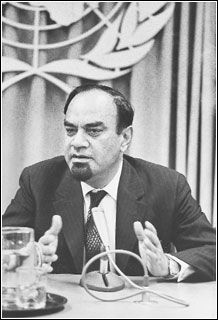
After graduating from Government College, Lahore, the University of London, and Oxford University, Mirza Muzaffar Ahmad joined India’s Civil Service in 1939. Following the Partition, he joined Pakistan’s Civil Service and proceeded to assist Pakistan in making economic strides. Mirza Muzaffar Ahmad was instrumental in the signing of the Indus Basin Treaty, funding of Mangla and Tarbela Dams, dissolution of One Unit, and forging macroeconomic agreements between East and West Pakistan. He rose through the ranks holding such senior appointments as Secretary Commerce, Secretary Finance, Deputy Chairman of the Planning Commission and Economic and Financial Advisor to Presidents Ayub Khan, Yahya Khan and Prime Minister Z.A. Bhutto of Pakistan. Mirza Muzaffar Ahmad led several delegations representing Pakistan to numerous countries, including China, USA, United Kingdom, Iran, Jordan, Germany, Italy, USSR and Bulgaria. Under his stewardship, Pakistan enjoyed a sustained record of economic growth and prosperity and is still remembered as the “golden era of Pakistan” Mirza Muzaffar Ahmad went on to serve as Executive Director and Vice President of the World Bank.
Sir Muhammad Zafrulla Khan
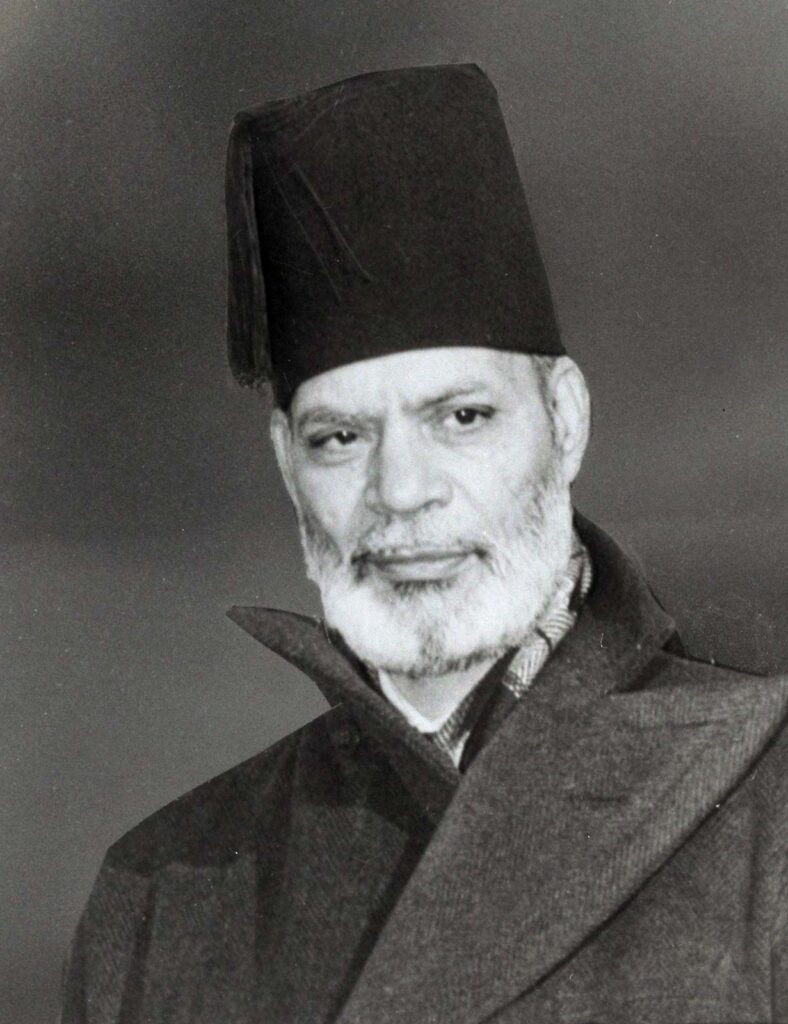
One of Pakistan’s founding fathers, Hazrat Muhammad Zafrulla Khan age had the distinct honour of being a companion of the Promised Messiah, the founder of the Ahmadiyya Muslim Community. Zafrulla Khan represented Pakistan on the international stage for nearly three decades. After establishing himself as a talented lawyer, he lobbied for a separate nation by drafting the Lahore Resolution and representing the Muslim League at the Radcliffe Commission. Muhammad Ali Jinnah later appointed Zafrulla Khan as Pakistan’s first Foreign Minister, enabling him to adeptly represent Pakistan before the UN Security Council, advocate for various Muslim nations, and help forge the Sino-Pak friendship. His bona fides secured him the distinction of being the only Pakistani to serve as president of both the UN General Assembly and the International Court of Justice.
Dr Abdus Salam
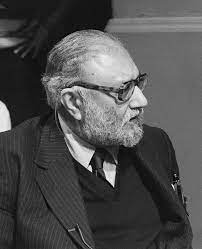
His genius introduced the electro-weak force to the world and proved instrumental in discovering the “God Particle.” But Dr Abdus Salam’s legacy transcends science. When, in 1979, he became Pakistan’s first Nobel Laureate, the physicist donated his entire purse to create an education fund in Pakistan. He also made trailblazing efforts for Pakistan’s space and nuclear programs. He did so despite the body politic dismissing his work as a conspiracy, his name erased from textbooks, his community persecuted. His greatest legacy, therefore, may lie in personifying the hadith, “Love of one’s homeland is a part of faith.” “I was born a Pakistani,” Salam declared, “and I will die a Pakistani.”
Obaidullah Aleem

Obaidullah Aleem is regarded as one of the most famous modern poets of the Urdu language, introducing a unique and distinct style to the poetic Urdu landscape. After completing his M.A. in Urdu from Karachi University, Obaidullah Aleem initially worked as a radio producer and later joined Pakistan Television Corporation Karachi Studios. As a senior producer, he introduced many new talents over a decade. However, despite his inspirational popularity, he suffered extreme discrimination as an Ahmadi Muslim and was prevented from promotion which ultimately led to his resignation. Chand Chehra Sitara Ankhhen, was the first of his three books, published in 1974, which earned him the Adamji Prize – Pakistan’s highest literary award. In his own words, he perfectly encapsulates his lasting love and unwavering loyalty towards his beloved motherland, despite the relentless persecution: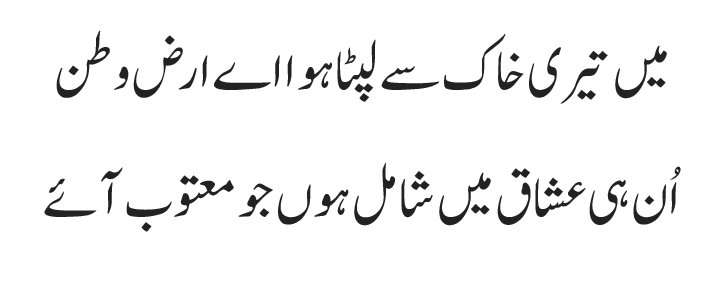
Translation:
I am wrapped in your dust, O! Homeland; I am one of those Lovers who were cursed
Services In the Armed Forces of Pakistan
Major General Nazir Ahmad Malik
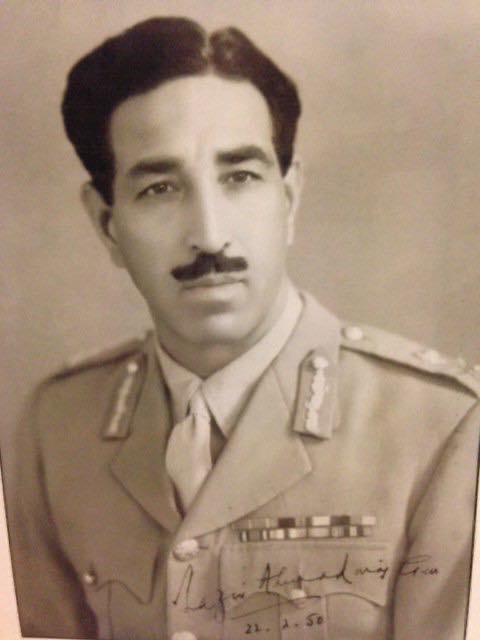
Following his graduation from the Royal Military Academy Sandhurst in 1928, Major General Nazir Ahmad Malik fought for the allies in the Second World War as part of the Indian Army. He joined his battalion in 1944 in Italy and was awarded an MBE for his exemplary services. Major General Nazir Ahmad Malik was one of the first generals of the newly formed Pakistan and commanded his division during the Kashmir War. Hazrat Muhammad Zafrulla Khan mentioned him, alongside numerous other Ahmadi Muslims – e.g., Major General Iftikhar Khan Janjua, Lieutenant General Abdul Ali Malik, and Lieutenant General Akhtar Hussain Malik – before the Punjab Boundary Commission to underscore the Ahmadiyya Muslim Community’s contributions to the state.
Major General Naseem Ahmad
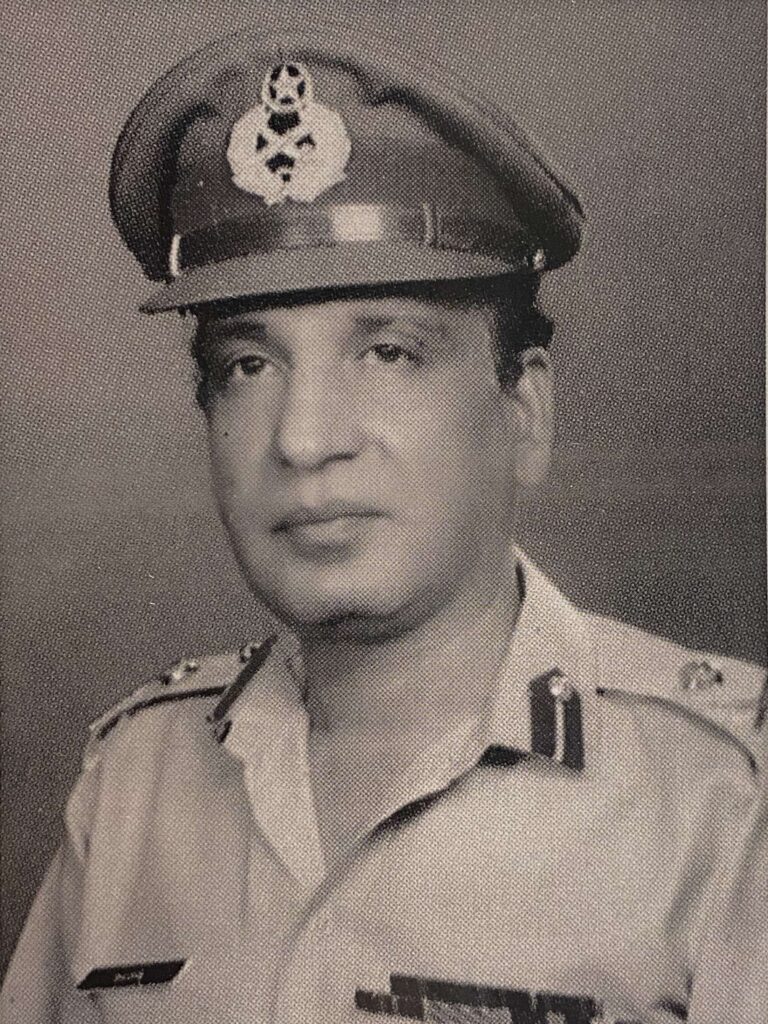
Major General Naseem Ahmad was commissioned into the Pakistan Armed Forces in 1958, becoming the first eye surgeon to attain the rank of Major General. Between 1979 and 1994, he undertook service at the Military Hospital Rawalpindi and served as a professor at the Pakistan Army Medical College. In 1996, he was awarded the Ramzan Ali Syed Gold Medal, which is awarded to the best graduating medical student of ophthalmology. For his exemplary service to the military and notable achievement in the field of medicine, he was granted the award of Hilal-e-Imtiaz (Crescent of Excellence). He was so highly acclaimed that King Faisal of Saudi Arabia chose Major General Naseem Ahmad for his own surgery.
Major General Nasir Ahmad Chaudhry Shaheed
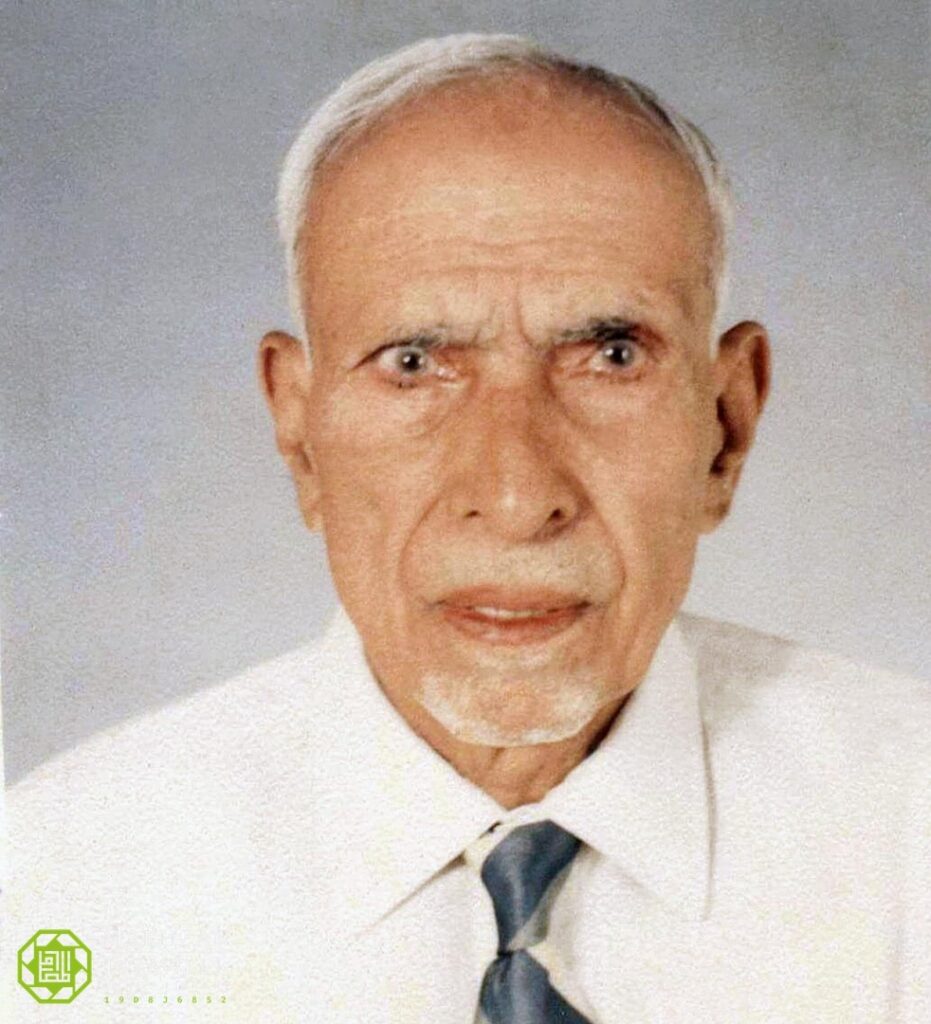
After graduating from Government College Lahore in 1940, Major General Nasir Ahmad Chaudhary Shaheed enlisted in 1942 and served in the Burma front during the Second World War. He became a Major General in the Pakistani Army in 1969 and completed his military service in 1975, after serving as commander of Rawalpindi National Defence University. During the 1971 Indo-Pak War, he was shot in the knee, the bullet becoming permanently lodged, thus having the distinction of honour being the only Pakistani General to be injured in Active War Duty. Despite being a highly decorated commander defending his nation, he was martyred during a grenade attack and gunfire on two Ahmadiyya Muslim mosques on May 28th 2010, while offering Friday Prayers in a terrorist attack.
Squadron Leader Muniruddin Ahmed
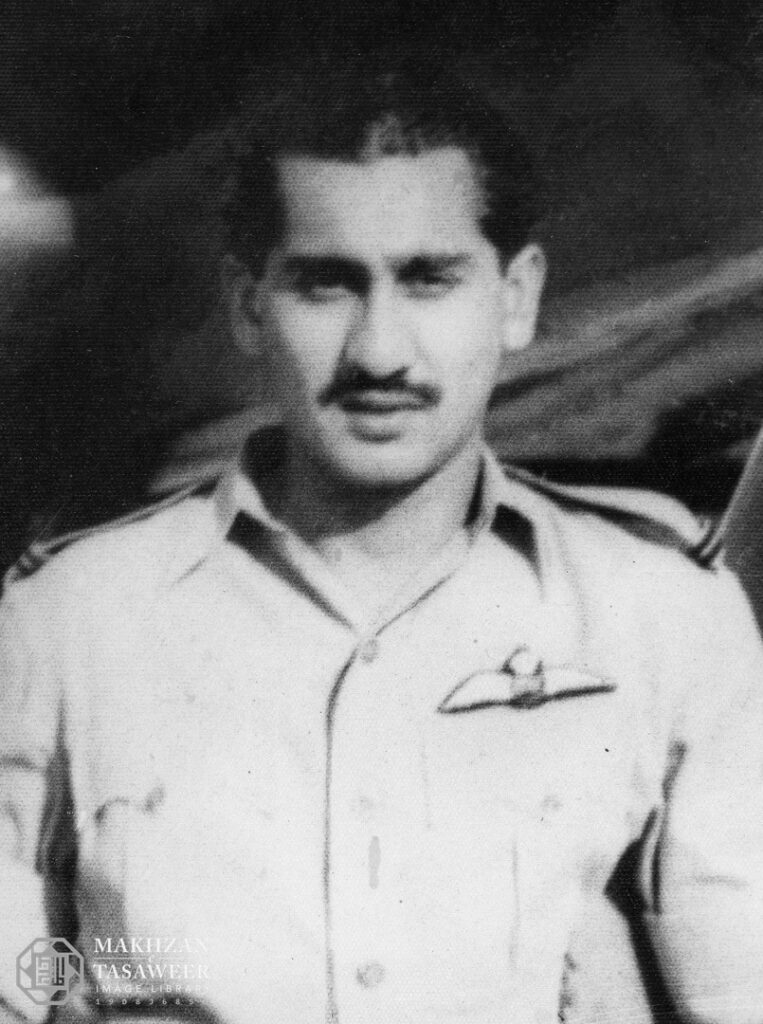
During the Second Kashmir War, Squadron Leader Muniruddin Ahmed Shaheed made the supreme sacrifice of his life. Squadron Leader Munir flew eight combat missions by persistently appealing to his colleagues to temporarily relieve him of his ground duties as Wing Operations Officer. In one of these missions, on his own initiative, he led his formation into Indian territory to seek out enemy fighters and shot down an IAF Gnat on September 10. He was awarded the Sitara-e-Jurat (Star of Courage) – Pakistan’s third-highest military award. Regarding his sacrifice, the Government stated, “Ahmed unhesitatingly volunteered to fly and without regard for his personal safety exposed himself within the firing zone of enemy guns for long periods. In the final successful attack, he made the supreme sacrifice when his aircraft was fatally hit.”
Lieutenant-General Dr Mahmood ul Hassan
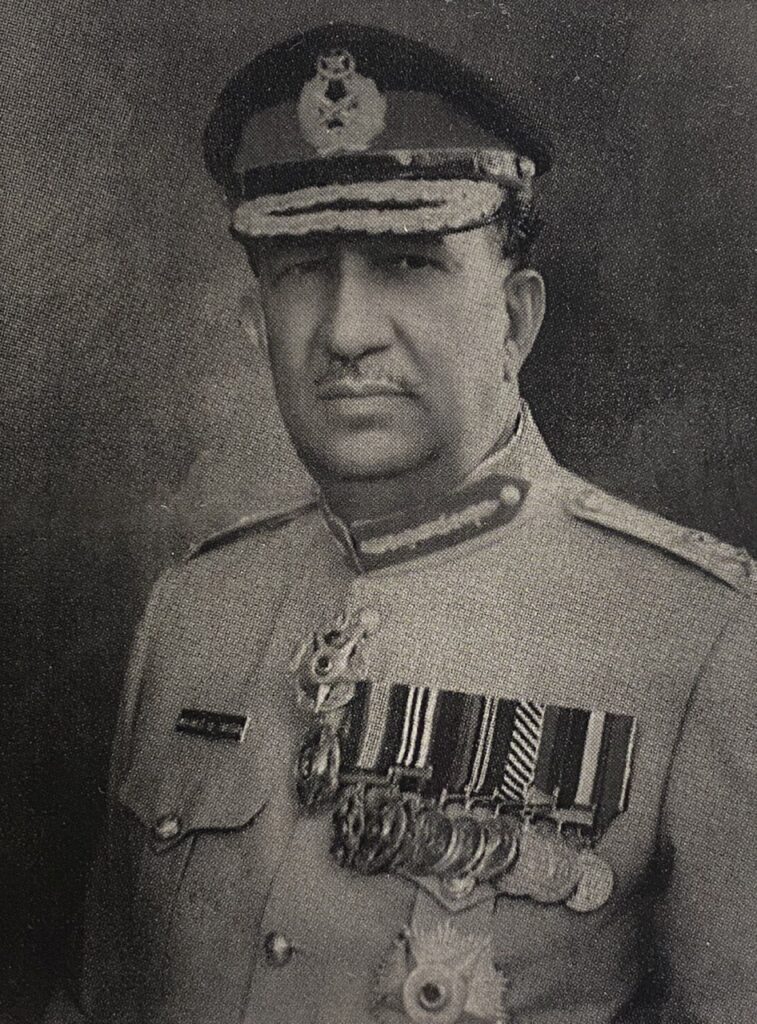
Following graduation from K.E Medical College, Lt. Gen. Dr Mahmood ul Hassan treated migrants of the Partition. He then joined Army Medical College (AMC) and served in Azad Jammu and Kashmir. After passing the Fellowship of the Royal Colleges of Surgeons exam in the UK, he returned home in 1962. As Lieutenant Colonel, Hassan treated the wounded during the Second Kashmir War and the 1971 Indo- Pakistan War. His surgical prowess not only earned him the positions of Director of Surgery and Principal at AMC, but compelled Gen. Zia-ul-Haq, who despite being a bitter opponent of the Community, to insist that he would not leave the country for his gallbladder surgery, as Hassan was supremely qualified to perform the procedure. For his outstanding services, Lt. Gen. Dr Mahmood ul Hassan was awarded with Tamgha-e-Imtiaz (Award of Excellence), Sitara-e-Imtiaz (Star of Excellence), Sitara-e-Basalat (star of Good Conduct) and Hilal-e-Imtiaz (Crescent of Excellence).
Major General Iftikhar Khan Janjua
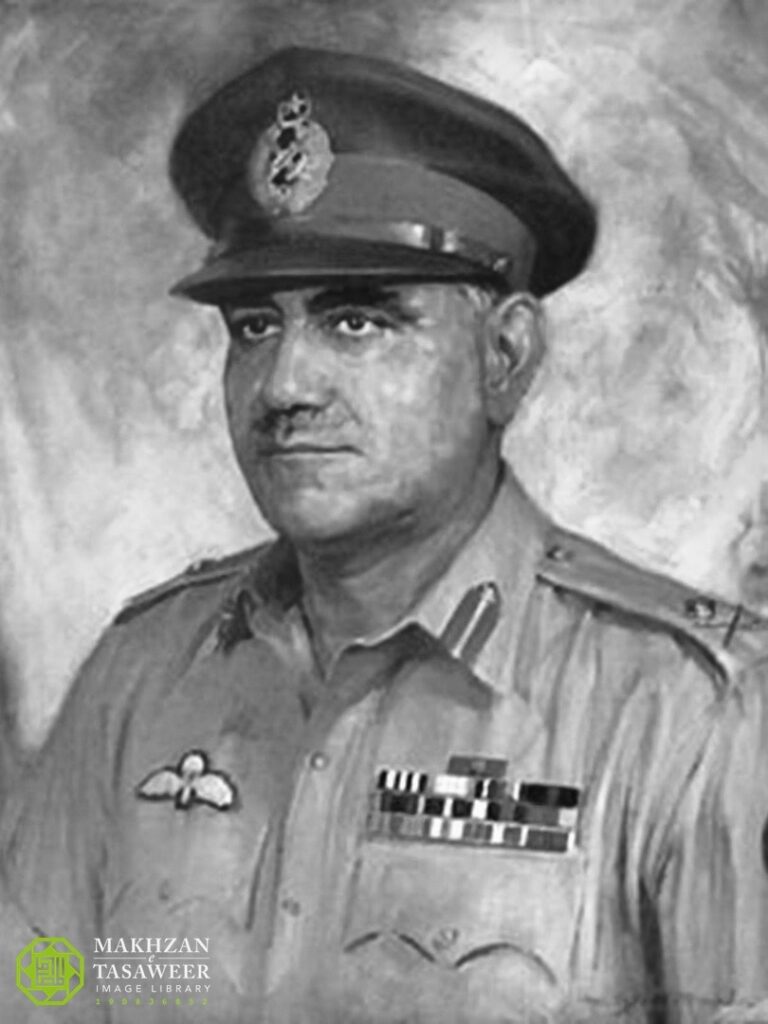
Major General Iftikhar Khan Janjua served as a brigadier during the Second Kashmir War. In April of 1965, Janjua rebuffed Indian encroachment upon Rann of Kutch, earning him the moniker “Hero of Rann of Kutch.” The victory also emboldened Pakistan to carry out offensives in Kashmir in September of the same year. He commanded the 23-d Infantry Division during the 1971 Indo Pakistan War. During this period, on December 9th, 1971, he was martyred in a helicopter crash in Kashmir. To date, Major General Iftikhar Khan Janjua remains the most senior Pakistani officer and only general to have been martyred in action. He was awarded Hilal-e-Jurat (Crescent of Courage), the second-highest military award, along with Sitara-e-Pakistan and Sitar-e-Quaid-e-Azam.
Lieutenant-General Abdul Ali Malik
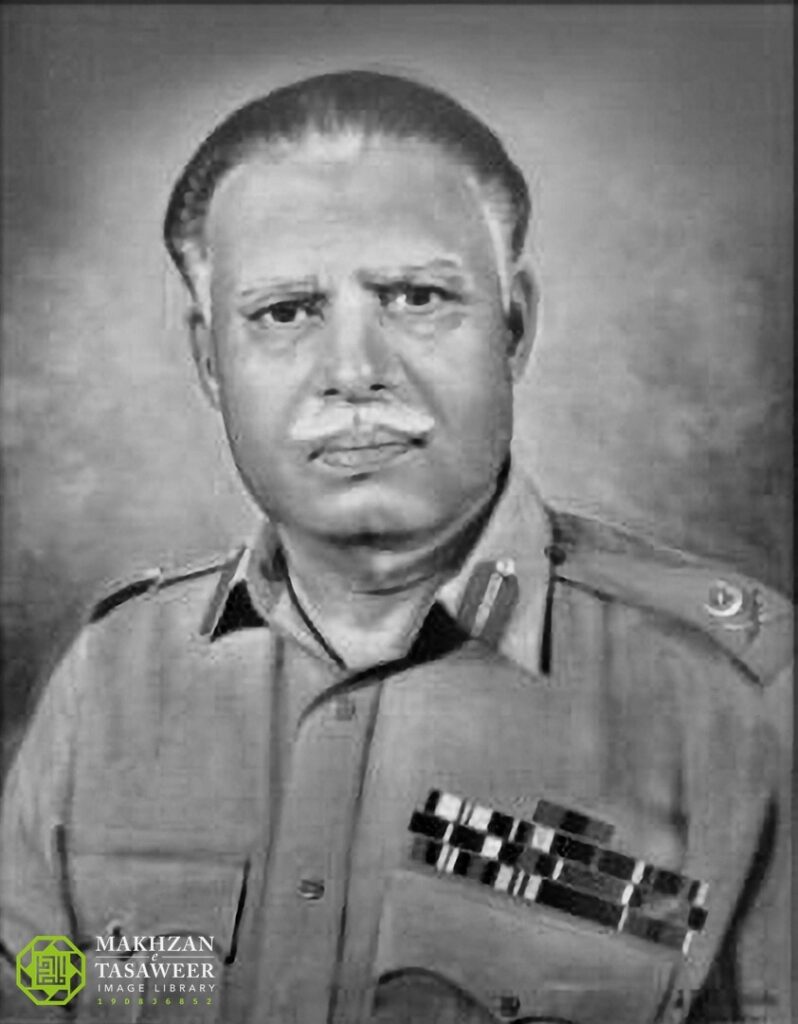
Three-star Lt. Gen. Abdul Ali Malik, brother of Lt. Gen. Akhtar Hussain Malik, enlisted in Pakistan’s Army as a cadet-officer. After earning his B.Sc. in electrical engineering from Pakistan’s Military Academy, he offered his expertise towards various civil projects and later became a member of Pakistan’s Army Corps of Engineers. During the Second Kashmir War, Malik commanded the 24th infantry brigade in Sialkot-Phillurah-Chamb and took part in the largest tank battle after World War I. During this campaign, his masterful command earned him the Hilal-e-Jurat (Crescent of Courage), the second-highest military award of Pakistan. As Major General, Malik commanded the 8th Infantry Division during the 1971 Indo-Pakistan War.
Lieutenant-General Akhtar Hussain Malik
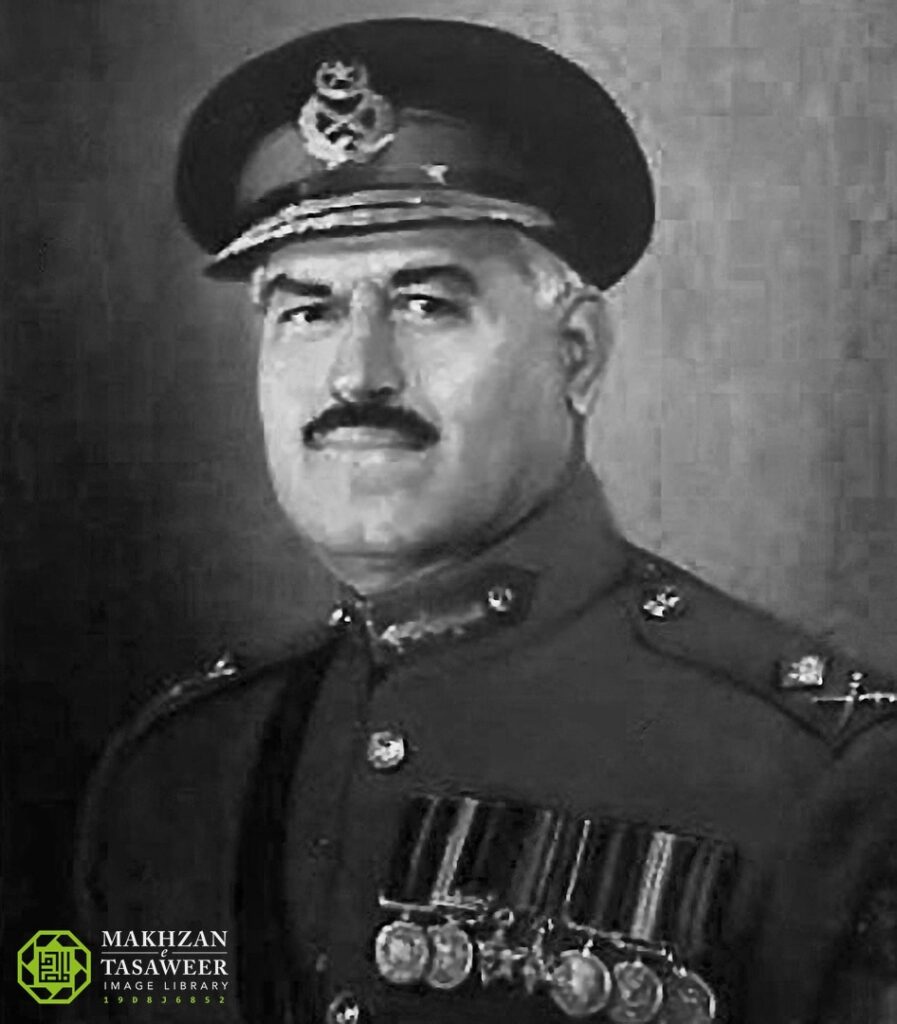
Three-star Lt. Gen. Akhtar Hussain Malik, brother of Lt. Gen. Abdul Ali Malik, began his military career during World War II, enlisting as a sepoy in the British army. He swiftly rose through the ranks, concluding his service as a major. Following independence, he opted for Pakistani citizenship and relocated across the border. Major General Akhtar Hussain Malik was assigned as the overall commander for ‘Operation Grand Slam’ which was a key battle during the Indo-Pak War of 1965. It was entirely on account of his skilful planning and courageous execution which resulted in an exceptional victory in this mission for which he was awarded the Hilal-e-Jurat (Crescent of Courage), the second-highest military award of Pakistan.
Air Marshal Zafar Ahmad Chaudhry
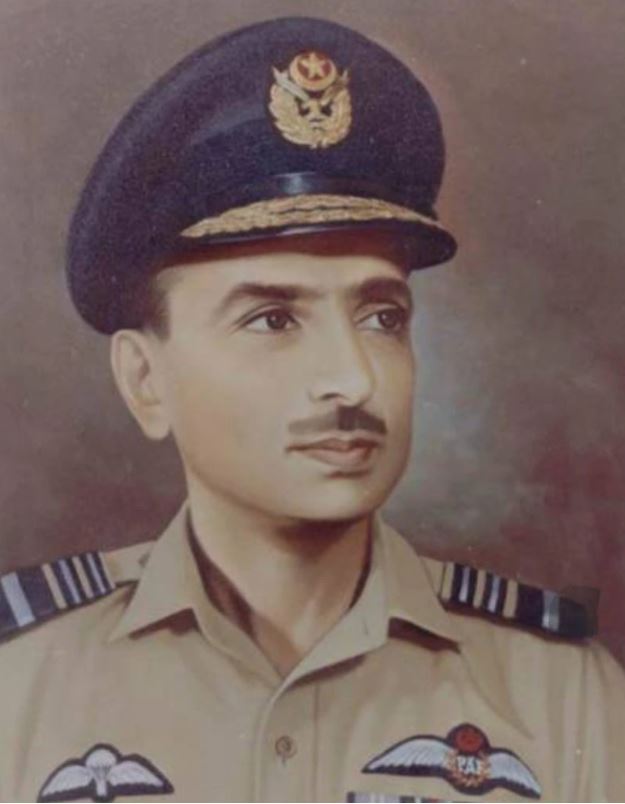
Air Marshal Zafar Ahmad Chaudhry was another Ahmadi who served as the first Chief of Air Staff of Pakistan’s Air Force, appointed in 1972 until 1974. Zafar Ahmad Chaudhry graduated from Punjab University, Lahore in 1944 and then joined the Royal Indian Air Force. Following the partition of the Indian subcontinent, Zafar Ahmad Chaudhry joined the Pakistan Air Force and qualified as an instructor on the North American T-6G Harvard. He pursued further education at the RAF Staff College in Hampshire, England before attending the Joint Service Defence College of the British Army. Before returning to Pakistan, he obtained qualification from the Imperial Defence College. (Hayes, Grace P & Martell, Paul, World Defence Who’s Who, p. 38 [1974]) In 1965, Zafar Ahmad Chaudhry served in the Air Headquarters as a Director Air Operations, taking responsibility for planning combat aerial operations during the second war with India. In 1969, he was appointed as Station Commander of the Pakistan Air Force Station Sargodha. In 1971, he was appointed as managing director of Pakistan International Airlines, which he directed until 1972. On 3 April 1972, Zafar Ahmad Chaudhry was appointed as the first Chief of Air Staff and commanded Pakistan’s Air Force. He served as the Chief of Air Staff until his resignation in 1974. As Brian Cloughley puts it in his 2016 book, A History of the Pakistan Army: Wars and Insurrections (p. 212): “He resigned, ‘In fairness to him’, says The Story of the Pakistan Air Force, ‘it must also be stated that his abrupt departure may have been precipitated by the anti-Qadiani sentiment sweeping the country at the time’. (Chaudhry was an Ahmadi). Things are not always what they seem.”